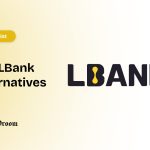Currencies and Tokens are usually stored in cryptocurrency wallets, but a few virtual currencies are held up by major wallets. These wallets can take the shape of digital storage that can be accessed on a device, like a banking app, or hardware, like a flash drive, that can be repeatedly connected to the internet.
Trust Wallet offers users absolute control over digital assets like cryptocurrencies and non-fungible tokens (NFTs). It is a non-custodial wallet that is simple. Their official wallet, the Binance and the Trust Wallet offer admission to over 4.5 million cryptocurrency assets and support for around 65 blockchains.
As opposed to the other centralized wallets, Trust Wallet gives customers safe access to decentralized applications (DApps) on all supported blockchains. With Trust Wallet, users can purchase, send, receive, stake, trade, and store bitcoins, making accessibility easier for everybody.
Opening an Account in the Trust Wallet
You simply choose Create New Wallet after installing the software, take your time, and review the Terms of Service and Privacy Policy. If you agree with them, then click Accept, then Continue.
The next step will query users to input a six-digit password as their special security code to get into their wallet. You should not disclose your code to any other party and keep it safe for security purposes.
Then, create a backup of the wallet to be restored if the mobile device is compromised or lost. Since it is non-custodial, users should complete this important step because they do not have access to the user data. Trust Wallet cannot assist a user in recovering their lost wallet in case of theft or loss.
To accept, check the three boxes on the backup. Click Continue. Then, a 12-word recovery phrase will display on the screen, and you should either write it down or store it in a safe place. After you are done, then click Continue.
To ensure that you have copied the recovery phrase accurately, you’ll be asked to click each word in its correct order. Select Done.
Now, from the main wallet screen, choose a coin or token to purchase from the purchase Menu. Now, a third-party source will be able to connect with you. Check the transaction fees because these are bought with fiat money, which is a preferred payment method that must be established prior to the purchase. Then click Confirm and wait for the money to appear in the wallet address.
Features of the Trust Wallet
Support for various cryptocurrencies: As previously indicated, Trust Wallet’s main advantage is the fact that it supports various cryptocurrencies, in contrast to other wallets that are basically limited to the ERC-20 tokens.
Adaptable buying: Users can buy cryptocurrencies through various third-party services like Wyre, MoonPay, and Simplex, among others, by using Trust Wallet.
NFT wallet: Users can buy, sell, and store NFTs in this wallet. From the Trust Wallet app, people can also trade NFTs from their mobile devices.
Staking and benefits: With Trust Wallet, you can stake specific coins and get awards.
Binance partnership: Another feather in Trust Wallets’ cap is their alliance with Binance Smart Chain. Because of this, the app has gained many users around the world. The app will continue to evolve and improve itself and create new features if its user base keeps growing. This will ensure the app’s continued popularity. Trust wallets, in conjunction with the deep pockets of finance.
Simple inter-wallet transactions: Using a private key, secret recovery phrase, or Keystore file, users can transfer their cryptocurrency from other wallets to Trust Wallet.
Variable fees: There is no need to become a subscriber to use Trust Wallet because it is available for free. There are also no fees associated with swaps or in-app transactions. On the other hand, users must pay the associated network fee, which varies based on network congestion.
Private and Safe: Despite the criticism that hardware wallets are more secure than software wallets, Trust Wallet has made a more outstanding advancement in this field. Ensuring that there is a safe storage of all user assets is its main goal.
The app has features like PIN code scanning, fingerprint, and QR code scanning that make a great effort to make the app more secure for crypto holdings. Depending on their preferences, users can turn on these security features from the settings. This feature is similar to accessing a credit card exchange using a QR code and pin.
Is The Trust Wallet Decentralized or Centralized?
Trust Wallet being a decentralized cryptocurrency wallet, people have control of their own private keys and cryptocurrency holdings. Nevertheless, people can store cryptocurrency anonymously because it contains no personal information.
Users can keep their cryptocurrency investments ungovernable on centralized exchanges by using Trust Wallet. As a decentralized, non-custodial wallet, users are free from having to register for an account or divulge any private data. Moreover, uploading any KYC documentation is not required.
Trust Wallet has no access to the user’s private keys. When users generate a wallet for the first time, the data gets encrypted. Though it shows the private keys on the screen, users are the only ones with access to their wallet accreditation.
The user’s previous knowledge of cryptocurrency wallets and security will rule whether or not this is appropriate. True, Trust Wallet cannot help if the wallet is hacked; however, users still have control over their cryptocurrency investments.
If a user loses access to their private keys after forgetting their PIN, it cannot help. Those who are new to custodial storage and find it intolerable should think about utilizing a custodial wallet. The custodian looks after the user’s private keys and cryptocurrency tokens.
Staking Trust Wallet
Staking, frequently derived from the phrase “Proof of Stake” (PoS), is necessary for the consensus algorithm’s creation of new blockchain blocks. Then, these newly created blocks are added to the blockchain.
Read this article to understand what exactly is Proof of Stake (PoS)
The coins that holders stake are what let the blockchain validate up-to-date transactions. The amount of coins staked determines the transaction validation capacity. Staking keeps these coins in a wallet for some time while new coins are added and rewarded, much like interest is. Like a conventional interest system, your potential earnings increase with your stake amount.
Consequently, you should investigate Trust Wallet’s staking functionality if your aspect is to earn interest from your cryptocurrency holdings or to have a say in regulating particular currency networks.
It’s crucial to remember that not every cryptocurrency allows staking, though the list is steadily growing. Staking features are expected to be added by Ethereum (ETH) and Cardano (ADA) soon after they switch from Proof-of-Work (PoW) to Proof-of-Stake (PoS) systems.
At the moment, Trust Wallet supports staking for the following cryptocurrencies: Algorand (ALGO), Terra (LUNA), Osmosis (OSMO), Tezos (XTZ), Cosmos (ATOM), Kava (KAVA), and Binance Coin (BNB).
Conclusion
With its substantial support for various blockchain networks and digital assets, Trust Wallet is a highly popular software wallet that is commended for its easy-to-use interface. Users can access a single interface for trading and storing cryptocurrencies, decentralized applications, NFT marketplace exploration, and asset staking with the possibility of earning extra money.
These characteristics make Trust Wallet a complete and all-inclusive answer for various cryptocurrency needs. Additionally, it maintains a non-custodial structure, protecting the anonymity and privacy of its users.



















